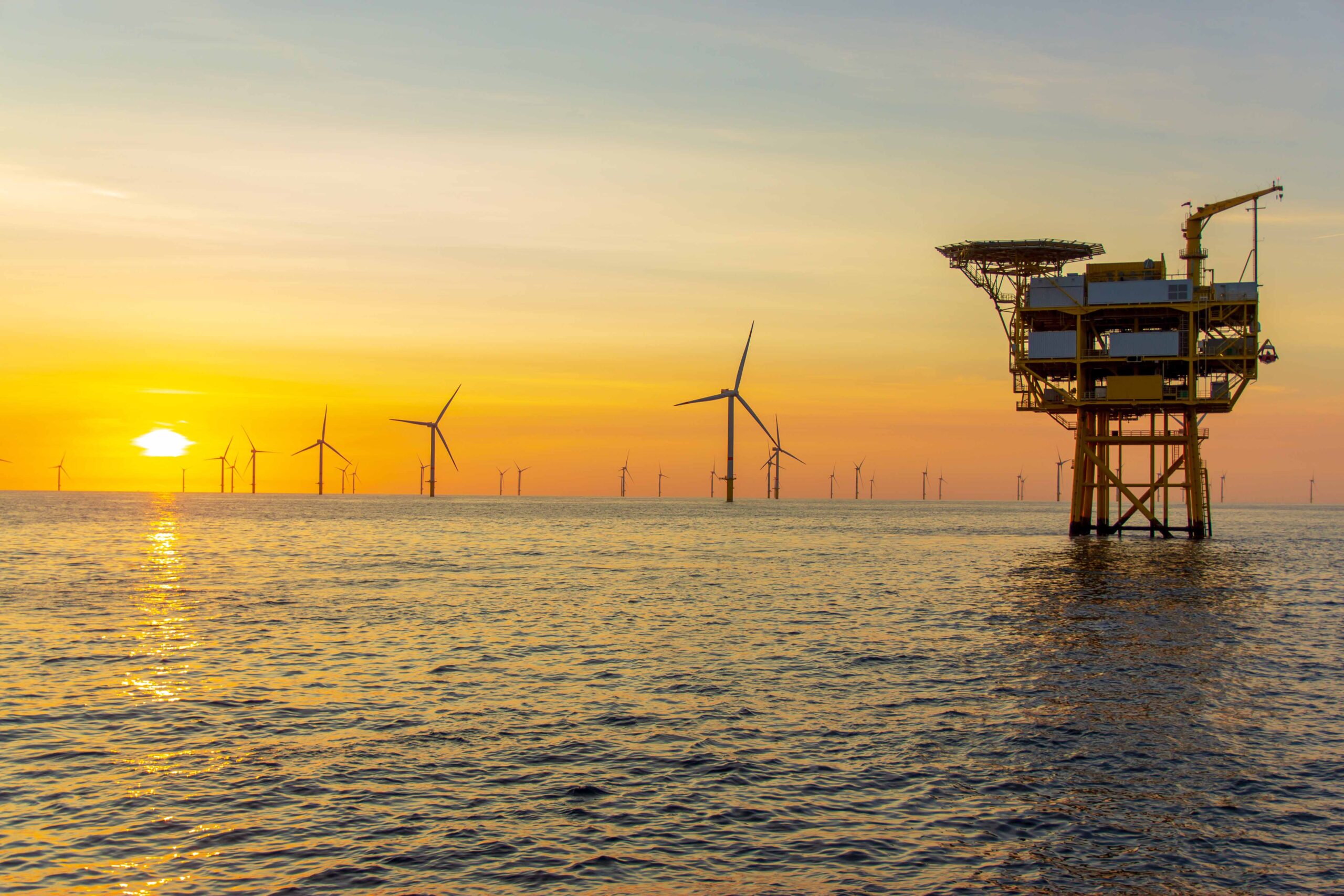Backed by a £7.3 million investment through the Offshore Wind Evidence and Change Programme (OWEC), the Crown Estate is partnering with a range of expert bodies across the UK to launch five new projects that they say will accelerate the nation’s path towards a net-zero and energy-secure future, whilst enabling marine and coastal ecosystems to thrive.
These initiatives are led by the Offshore Wind Industry Council, Scottish Government Marine Directorate, Historic England, the Department for Environment Food and Rural Affairs (Defra) and the Offshore Renewable Energy Catapult with support from numerous public, private and charitable organisations.
The projects will aim to fill critical evidence gaps around the impacts of offshore wind farms on marine ecosystems, advance solutions to reduce those impacts, enhance access to marine data and explore the opportunity for co-location of fisheries and offshore wind farms.
Through a mix of targeted studies, research projects, and comprehensive evidence-gathering, the programme aims to accelerate the deployment of offshore wind while supporting nature restoration.
‘A greenwashed land grab’
However, the Crown Estate has been accused in the Fishing Daily of “a smoke-and-mirrors campaign to smooth the path for even more lucrative offshore wind farms” and “a greenwashed land grab”.
The five projects are:
- Disco Scallops
Scientists found that scallops love ‘disco’ lights. They were successful in developing a new low-impact fishing technique that led to a 500% increase in scallop catch, and want to roll this out at a regional scale. This project will provide the evidence base to demonstrate that static fishing methods can be used in areas where mobile methods might be restricted – like in offshore wind farms and marine protected areas.
Led by the Offshore Wind Industry Council.
- ECOCHANGE
Ecosystem Consequences of Changes to Habitats and implications for a Net Gain Energy approach.
Building new offshore wind farms creates changes in biodiversity – both in new sealife communities that attach to the infrastructure and in the sandy, soft-bottom habitats around developments. This project aims to determine how much these changes influence the wider ecosystem and our marine food webs.
Led by Scottish Government Marine Directorate.
- MDE Heritage Accelerator
This project will improve access to marine heritage data which is gathered when offshore wind farms are developed to enable faster, informed decision making by regulators, developers and their advisors.
By integrating data from the Marine Data Exchange (MDE), into Historic England’s National Marine Heritage Record, the project aims to enhance planning and strengthen how heritage is represented.
Led by Historic England.
- Piloting of Offshore Wind Environmental Mitigation
This collaborative project between Government and the offshore wind industry will pilot two proposed innovative mitigation measures that could further reduce the impact of offshore wind farms on the marine environment. The Piloting of Offshore Wind Environmental Mitigation (POWEM) project will consist of two pilots:
- turbine blade painting to reduce bird collisions, and
- an offshore wind piling noise limit to reduce the impact of construction noise on marine species.
Led by the Department for Environment Food and Rural Affairs (Defra) in collaboration with the offshore wind industry.
- S3 (Subsea Soundscape)
This project will pioneer a new regional framework in the Celtic Sea to provide valuable insights into existing underwater noise conditions and marine mammal presence – understanding these baseline conditions will support with future environmental assessments for new floating offshore wind in the region.
Led by Offshore Renewable Energy Catapult.
However, the Crown Estate has been accused of “a smoke-and-mirrors campaign to smooth the path for even more lucrative offshore wind farms” and “a greenwashed land grab”.
